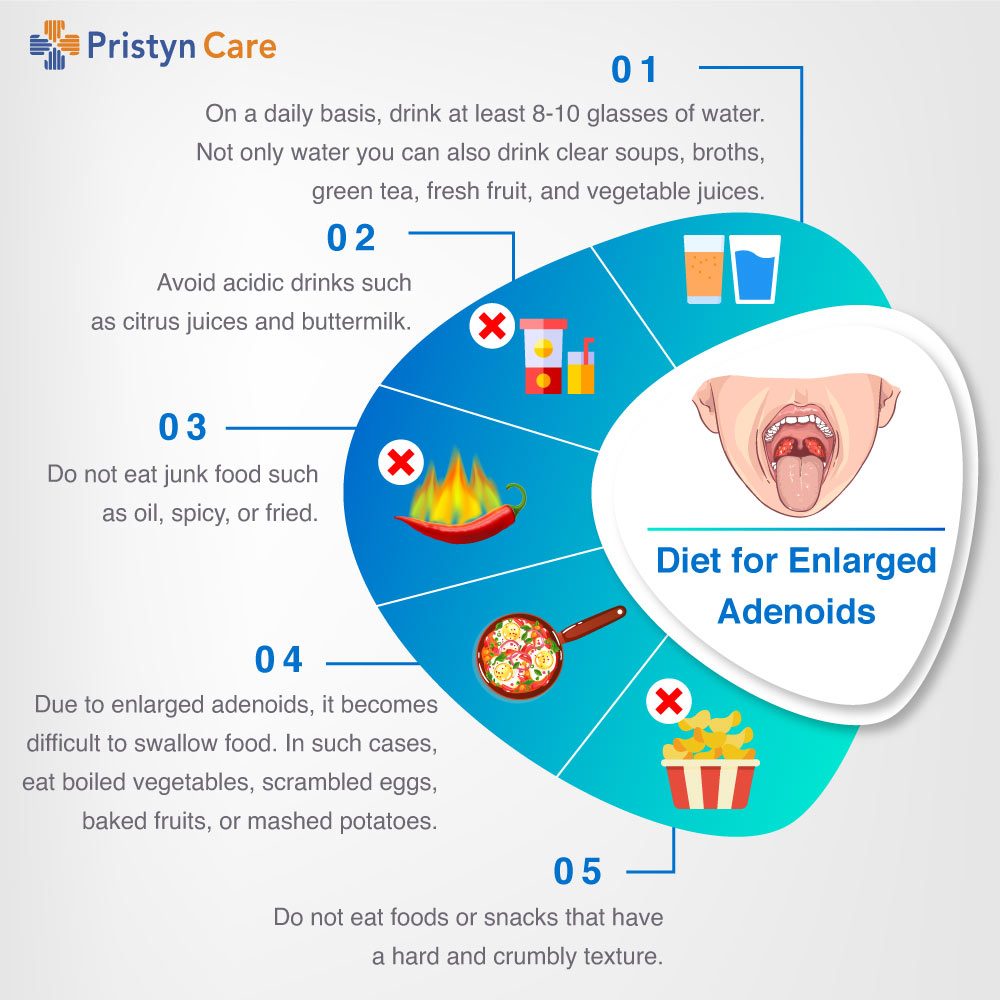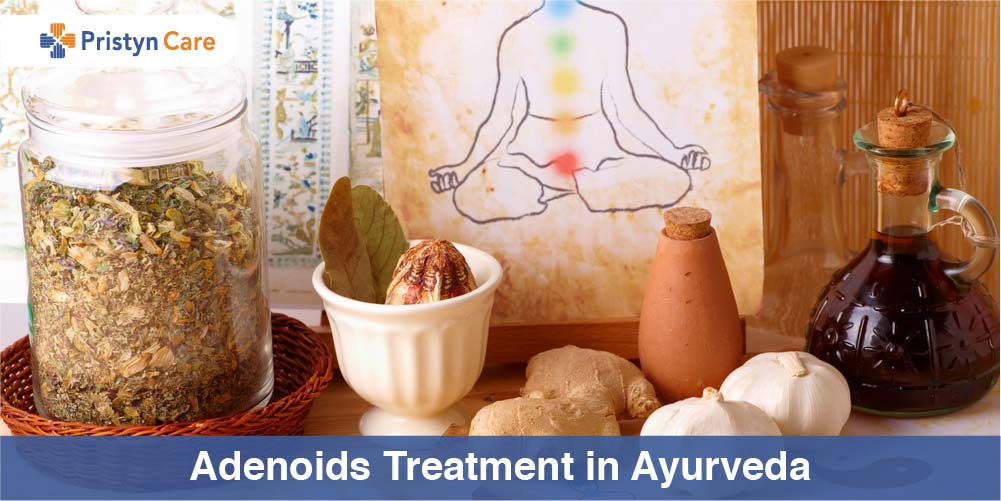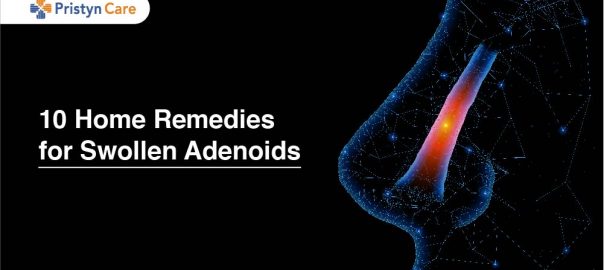![]() Views: 29,762
Views: 29,762
Adenoids Treatment in Ayurveda
It is usually located at the junction where the roof and posterior walls of the nasopharynx meet.
Dedicated Support at Every Step!
Our Doctors are available 24 hours a day, 7 days a week to help you!
Ayurveda describes adenoids start developing during childhood and enlarges when these get infected in the nose and throat. They usually start shrinking as the child gets older and tend to disappear when they reach puberty.
Table of Contents
Functions of Adenoids in Ayurveda
Adenoids along with tonsils are a part of the lymphatic system and its function is to clear away infections by filtering out the bacteria and viruses from the nose and their forceful entry inside the body.
- It helps to maintain body fluids.
- It promotes the production of antibodies against infections or foreign organisms.
According to Ayurveda, enlargement of adenoids can be well correlated with the term Kanthashaluka that directly affects the quality of life of an individual by the formation of tissue masses in the throat and nearby area.
No Cost EMI, Hassle-free Insurance Approval
Location of adenoids
An adenoid is a single mass tissue located at the back of the nose in the nasal passage which connects the cavity of nasal passage directly to the throat. This tissue is located in the upper direction of the nose and looks like tonsils.
Clinical features of infected adenoids
Enlarged and infected forms of adenoids especially occur in children. The clinical features of infectious adenoids are below:
Nasal symptoms:
- Epistaxis
- Obstruction in the nasal passage
- Discharge through the nasal passage
- Changes in voice
- Sinusitis
Aural symptoms:
- Otitis media with effusion
- Obstruction occurrence in the tubal area
- Chronic suppurative otitis media
- Recurrent attacks of acute otitis media
General symptoms:
- Aprosexia
- Adenoid faces
- Hypertension in the pulmonary area
Ayurvedic Management of Adenoids:
Ayurveda focuses on treating an ailment from its roots and by strengthening the whole body. Ayurvedic management focuses on correcting the vitiated dosha. Ayurvedic management of adenoids is on the basis of various signs and symptoms of the disease. Adenoid enlargement has direct connection with the ayurvedic disease Kanthashaluka. Therefore, the management of this disease was designed according to that. The lists of medications to manage the disease are:
- Varanadi Kashaya- 15 ml
- Kanchanar Guggulu-1tab- it rejuvenates and revitalizes the cells.
- Nasya with Anu Taila
- Sitopaladi Churna (1gm)- The Churna is a composition of cinnamon, long pepper, bamboo shoots, cardamom and powdered sugar.
- Khadiradi Vati- Another Ayurvedic Aushadhi with antiseptic, astringent and expectorant properties is known to help in adenoiditis treatment.
- Licorice - It acts as an expectorant. Also, possess anti-inflammatory and anti-viral property.
- Agasthya Rasayanam - An ayurvedic formulation useful in the treatment of several respiratory diseases enhances immunity.
- An equal amount of amla, basil and turmeric ground into a fine powder can help prevent viral and bacterial infection in children.
- Pippali and Maricha both of which are a variety of peppers can help fight viral and bacterial infection in children and adults.
- Tinospora Gulancha- An ayurvedic herb with immunostimulatory and antibiotic properties is known to cure all types of pitta dosha and help manage adenoiditis conditions.
Side Effects of Ayurveda Treatment for Enlarged Adenoids
Some of the side effects that you should watch out for while treating enlarged adenoids with Ayurvedic medicines are-
- Triphala: diarrhea and abdominal discomfort
- Guggul: stomach upset, headaches, nausea, vomiting, diarrhea, loose stools, belching and hiccups
As there is not enough evidence of standard quality related to ayurvedic medicines, it is advised it should not be given to children, pregnant women, and lactating mothers.
Diet for Enlarged Adenoids In Ayurveda
For the overall well-being of the body, it is important to take care of food habits in addition to ayurvedic treatment. Here are some tips that you can try are-

- On a daily basis, drink at least 8-10 glasses of water. Not only water you can also drink clear soups, broths, green tea, fresh fruit and vegetable juices.
- Avoid acidic drinks such as citrus juices and buttermilk.
- Do not eat junk food such as oil, spicy or fried.
- Due to enlarged adenoids, it becomes difficult to swallow food. In such cases, eat boiled vegetables, scrambled eggs, baked fruits or mashed potatoes.
- Do not eat foods or snacks that have hard and crumbly texture.
Take Away
Some other ayurvedic herbs tend to effectively manage the enlarged adenoids include Dronapushpi and Tejohwa. However, you should consult a doctor before you opt for these medicines, especially if to treat adenoids in kids. You can write your query in the comment section below and we will get back to you to the soonest.
Also Read:
- Possible Adenoids Treatment Options Without Surgery
- 10 Home Remedies for Swollen Adenoids
- Adenoids Removal Side Effects
FAQs
Adenoids tend to shrink on its own as a child grows. When adenoids enlarge in adults, it can lead to difficulty in swallowing food as well as interfere with sleeping patterns. Under such extreme conditions, one should opt for adenoids removal with surgery.
Yes, following an adenoidectomy, the adenoids can regrow if these were not taken out completely.










